Over time, the aging process can lead to changes in the scalp’s structure and function, affecting hair growth and quality. Neglecting your scalp can result in various issues like dryness, itchiness, and even hair loss. With insights from Nicehairvietnam, you’ll learn essential techniques to nurture and revitalize your scalp, promoting healthier, luscious locks. Take charge of your hair’s destiny by giving your scalp the care it deserves!
What is the process of scalp aging?
Scalp aging is a natural and gradual process that occurs as we grow older. Similar to our skin, our scalp undergoes changes over time, which can impact the overall health and appearance of our hair. As we age, the production of essential proteins like collagen and elastin decreases, leading to a loss of elasticity and firmness in the scalp.
These changes can affect hair follicles, leading to reduced hair growth and thinning hair. Additionally, the scalp may become drier and more prone to irritation and flakiness. With aging, the circulation of blood and nutrients to the scalp may also decrease, further compromising the health of hair follicles.
As we age, it’s natural to be concerned about wrinkles and aging skin, but what often goes unnoticed is the aging process that also affects our scalp. Understanding scalp aging is crucial as it can have a significant impact on the health and appearance of our hair.
Scalp aging occurs due to various factors, with collagen and elastin playing a key role. Collagen provides volume to the skin, while elastin gives it elasticity. Changes in these two essential components determine the aging process. Notably, the scalp tends to show more pronounced changes compared to the face due to its unique characteristics. The scalp is thicker, oilier, hairier, and exposed to more sunlight, which can accelerate the aging process. Over time, this can affect hair follicles, leading to weakened hair growth and thinning. Consequently, maintaining scalp health becomes crucial to preserve the vitality of our hair.
Dr. BL Jangid, a renowned Dermatologist and Hair Transplant Surgeon at SkinQure Clinic in Saket, New Delhi, offers valuable insights into how to protect and enhance scalp health. A comprehensive approach is recommended, involving proper scalp care, regular massages, and the use of nourishing hair products. Additionally, a well-balanced diet rich in essential nutrients can support the overall health of the scalp and promote healthy hair growth.
Dr. Jangid’s expertise sheds light on the intricacies of scalp aging, empowering us to take proactive measures to maintain vibrant and healthy hair as we gracefully age. So, let’s explore his expert advice and ensure our scalp receives the care it deserves for radiant, luscious hair.
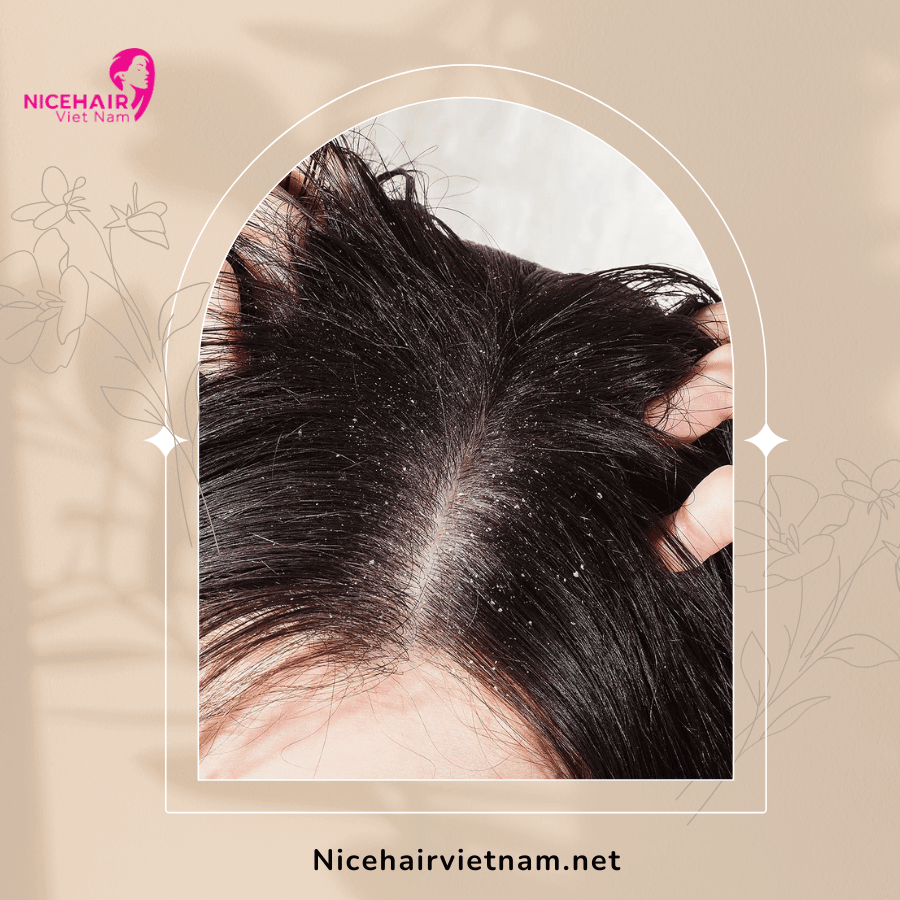
Factors that contribute to scalp aging process
Scalp aging is a multifaceted process influenced by various internal and external factors. As elucidated by the distinguished hair transplant surgeon, understanding these contributors is paramount in devising effective preventive measures and rejuvenating strategies for maintaining a healthy scalp and vibrant hair.
Internal factors
Oxidative stress
As we gracefully age, one of our primary concerns is maintaining youthful and healthy skin. However, an often neglected aspect of the aging process is the impact it has on our scalp. The scalp, a crucial foundation for healthy hair growth, is vulnerable to the effects of oxidative stress, a phenomenon that escalates with age.
Oxidative stress occurs when there is an imbalance between reactive oxygen species (ROS) or free radicals and the body’s antioxidant defenses. ROS are natural byproducts of cellular metabolism and are usually neutralized by antioxidants to prevent damage to cells and tissues. However, as we age, this equilibrium can tip in favor of ROS, leading to an accumulation of free radicals and causing oxidative stress.
Several factors contribute to the heightened oxidative stress experienced with age:
- Environmental exposure: Prolonged exposure to environmental pollutants, ultraviolet (UV) radiation, and other external aggressors can increase the production of free radicals on the scalp.
- Lifestyle choices: Unhealthy habits such as smoking, poor diet, and sedentary lifestyles can exacerbate oxidative stress and accelerate scalp aging.
- Decreased antioxidant defenses: As we age, the body’s natural production of antioxidants declines, reducing its ability to counteract the damaging effects of free radicals.
The scalp, being an extension of our skin, is not immune to the consequences of oxidative stress. When free radicals overwhelm the scalp’s defense mechanisms, essential components like collagen and elastin become prime targets. Collagen, responsible for maintaining the structural integrity of the scalp, loses its elasticity and strength under oxidative duress. This leads to a decline in the scalp’s ability to support hair follicles and results in weakened hair growth. Furthermore, oxidative stress impacts the scalp’s microcirculation, reducing nutrient supply to hair follicles. This compromised blood flow stifles hair growth and contributes to thinning and dullness.
Nutritional deficiency
The desire to preserve our youthful appearance becomes a paramount concern as we journey through life. While we often focus on skincare routines and anti aging treatments, we tend to overlook the significant impact of nutritional deficiencies on our scalp health and hair vitality.
Nutritional deficiencies occur when our bodies lack adequate amounts of essential vitamins, minerals, and nutrients necessary for optimal functioning. These deficiencies can arise due to various factors, including inadequate diet, poor absorption, and certain medical conditions. As we age, our bodies become more susceptible to nutrient deficiencies, which can have far-reaching consequences on our overall health, including the health of our scalp and hair.
Vitamin C, also known as ascorbic acid, stands as a crucial player in the realm of scalp health and hair growth. One of its primary functions is to support collagen production. Collagen, a structural protein, is responsible for providing strength and elasticity to the scalp and hair follicles. When Vitamin C levels are insufficient, collagen synthesis is compromised, leading to weakened scalp structure and diminished hair quality. Vitamin C deficiency can be a significant contributing factor to scalp aging. As the body’s primary water-soluble antioxidant, Vitamin C combats oxidative stress and neutralizes harmful free radicals that can damage scalp cells and impede hair growth. When the balance between free radicals and antioxidants is disrupted, oxidative stress prevails, leading to premature scalp aging.
Aging of the scalp can manifest in various ways, including weakened hair follicles, increased hair shedding, and thinning hair. Additionally, the scalp may become dry, flaky, and prone to irritation, further exacerbating hair health issues.
Stress
In our fast paced modern world, stress has become an almost constant companion, affecting our physical and mental well being in profound ways. While we often associate stress with its immediate impact on our emotional state, its far reaching consequences extend even deeper, influencing the aging process within our bodies.
When we encounter stress, whether from work pressures, personal challenges, or external factors, our bodies respond by releasing stress hormones like cortisol and adrenaline. These hormones activate the body’s “fight-or-flight” response, preparing us to deal with perceived threats. However, chronic or prolonged stress can lead to an excessive release of these hormones, disrupting the body’s balance and affecting various biological processes.
One of the key ways stress influences the aging process is through its effect on telomeres. Telomeres are protective caps at the end of our chromosomes, akin to the plastic tips on shoelaces that prevent fraying. As we age, these telomeres naturally shorten, a process often associated with cellular aging. However, chronic stress has been linked to accelerated telomere shortening, essentially speeding up the aging process at a cellular level.
Stress induced hormonal imbalances can trigger oxidative stress, a state where free radicals overpower antioxidants, leading to cellular damage and inflammation. This oxidative damage can have detrimental effects on various body tissues, including the skin, organs, and even the scalp. The scalp, being a part of the skin, is equally susceptible to the consequences of stress induced inflammation, which can manifest in scalp dryness, itchiness, and hair loss.
Aging itself can be a significant stressor, leading to a paradoxical feedback loop. As we age, we may become more vulnerable to stress, and the stress, in turn, can accelerate the aging process. This cycle of stress and aging can create a challenging burden on our overall health and well being.
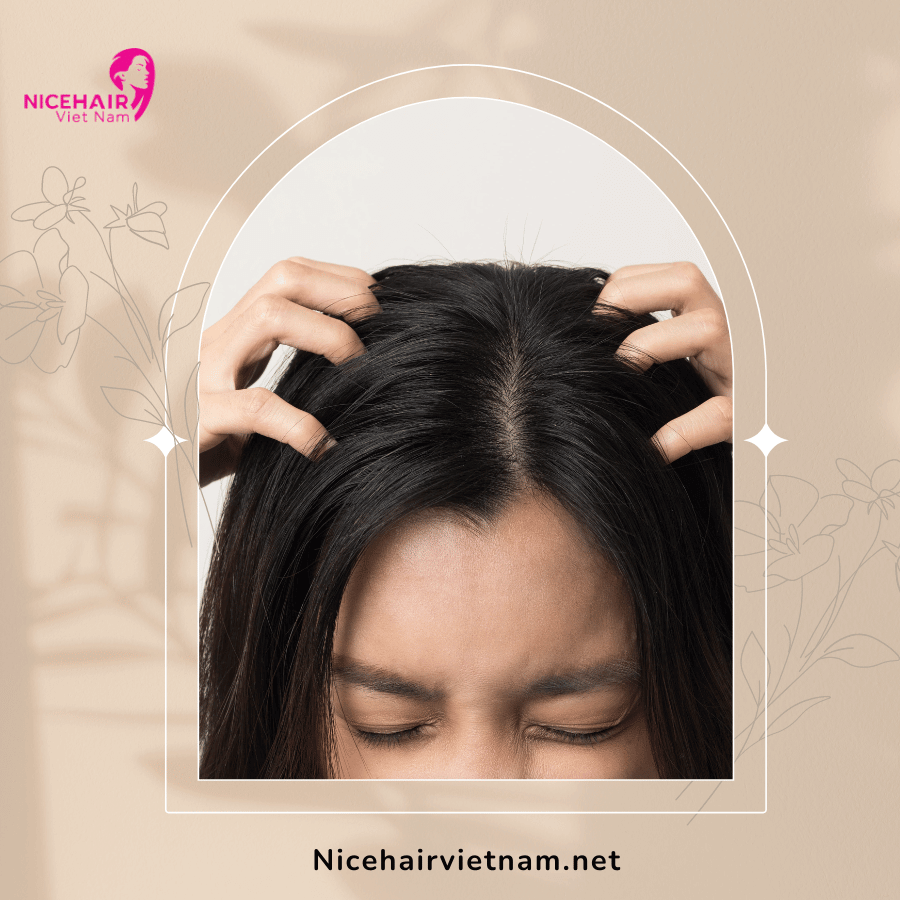
Smoking and alcohol
In the pursuit of a healthy and youthful appearance, we often focus on skincare and haircare routines. However, there are lifestyle factors that can significantly contribute to scalp aging, but often go unnoticed. Smoking and alcohol consumption, prevalent habits in modern society, have profound effects on our overall health, and they also play a detrimental role in the aging process of the scalp.
Cigarette smoke contains thousands of harmful chemicals that not only affect our respiratory system but also have a cascading impact on our skin and scalp. Smoking accelerates the aging process by causing oxidative stress and impairing blood flow. This oxidative stress leads to the production of free radicals, damaging skin cells and compromising the scalp’s health. Additionally, smoking constricts blood vessels, reducing the delivery of vital nutrients and oxygen to the scalp and hair follicles. As a result, hair growth is stunted, and the scalp becomes more susceptible to dryness, flakiness, and premature hair loss.
Excessive alcohol consumption can wreak havoc on the body, including the scalp and hair. Alcohol is a diuretic, which means it dehydrates the body, including the scalp. Dehydration can lead to a dry and itchy scalp, further contributing to scalp aging. Moreover, alcohol impairs the body’s ability to absorb essential nutrients, including those vital for scalp health and hair growth. Deficiencies in nutrients like Vitamin C, Vitamin E, and B vitamins can weaken the scalp’s structure and reduce hair’s resilience.
Smoking and excessive alcohol consumption create a vicious cycle of scalp aging. As the scalp ages, it becomes more susceptible to damage from these lifestyle habits, and in turn, these habits accelerate scalp aging further. Breaking this cycle is essential for maintaining healthy hair and promoting scalp rejuvenation.
Estrogen and hormonal imbalance
Hormonal balance plays a pivotal role in our overall health and well being. While we often associate hormonal changes with various stages of life, such as puberty or menopause, their influence extends to many aspects of our body, including the scalp. Estrogen, a crucial female hormone, has a significant impact on scalp health and the aging process. This article aims to simplify the complex relationship between estrogen and scalp aging, offering easy to understand insights into how hormonal imbalances can affect our beloved locks.
Estrogen, primarily known for its reproductive functions, is also instrumental in maintaining healthy skin and hair. In the scalp, estrogen helps regulate sebum production, the natural oil that lubricates and nourishes hair follicles. Adequate sebum production keeps the scalp moisturized, preventing dryness and flakiness, which are common signs of scalp aging. Additionally, estrogen contributes to collagen production, a crucial protein that provides structural support to the scalp, promoting its elasticity and resilience.
As we age, our bodies undergo various hormonal changes, including fluctuations in estrogen levels. These hormonal shifts can impact scalp health and accelerate the aging process. When estrogen levels decline, sebum production may reduce, leading to a dry and irritated scalp. Diminished collagen production can also weaken the scalp’s structural integrity, making it more susceptible to damage and hair thinning.
Hormonal imbalances can occur due to various factors, such as stress, dietary habits or medical conditions. These imbalances can disrupt the delicate harmony of hormones in the body, including estrogen, and affect the scalp’s overall health. An excess or deficiency of estrogen can both contribute to scalp aging, making it essential to maintain hormonal balance for healthy hair.
Chronic condition of scalp or body
Chronic conditions affecting the scalp or body can significantly impact our quality of life and overall well being. From persistent scalp issues to long term systemic disorders, understanding these conditions is essential for early detection, proper management, and improved outcomes.
Chronic scalp conditions:
- Psoriasis: Psoriasis is a chronic skin condition characterized by inflamed, scaly patches that can affect the scalp. These silvery white scales can cause itching, discomfort, and even hair loss. Although the exact cause is not fully understood, genetics and immune system dysregulation are believed to play a role. Topical treatments, medicated shampoos, and phototherapy are commonly used to manage scalp psoriasis.
- Seborrheic dermatitis: Seborrheic dermatitis is a common scalp condition causing red, itchy, and flaky patches, often mistaken for dandruff. It is thought to be linked to yeast overgrowth, and factors like stress and hormonal changes may exacerbate it. Regular use of medicated shampoos containing antifungal agents, along with gentle scalp care, can effectively control seborrheic dermatitis.
- Scalp eczema: Scalp eczema, also known as atopic dermatitis, is a chronic inflammatory skin condition that can affect the scalp and cause itching, redness, and irritation. It is often associated with a family history of allergies and asthma. Emollient rich treatments, medicated shampoos, and avoiding triggers can help manage scalp eczema.
Chronic body conditions:
- Rheumatoid arthritis: Rheumatoid arthritis is an autoimmune disorder that causes chronic inflammation in the joints, leading to pain, stiffness, and swelling. It can also affect the skin and lead to conditions like rheumatoid nodules and vasculitis. Early diagnosis and targeted therapy, including disease-modifying antirheumatic drugs (DMARDs), can help manage symptoms and prevent joint damage.
- Chronic migraines: Chronic migraines are recurring headaches lasting for more than 15 days per month for at least three months. They can significantly impact daily life and are often associated with triggers such as stress, hormonal changes, and certain foods. A combination of lifestyle modifications, medications, and alternative therapies can be effective in managing chronic migraines.
- Fibromyalgia: Fibromyalgia is a chronic pain condition characterized by widespread musculoskeletal pain, fatigue, and sleep disturbances. The exact cause is not known, but it is believed to involve abnormal pain processing in the central nervous system. A multidisciplinary approach, including medications, physical therapy, and cognitive behavioral therapy, can improve fibromyalgia symptoms.
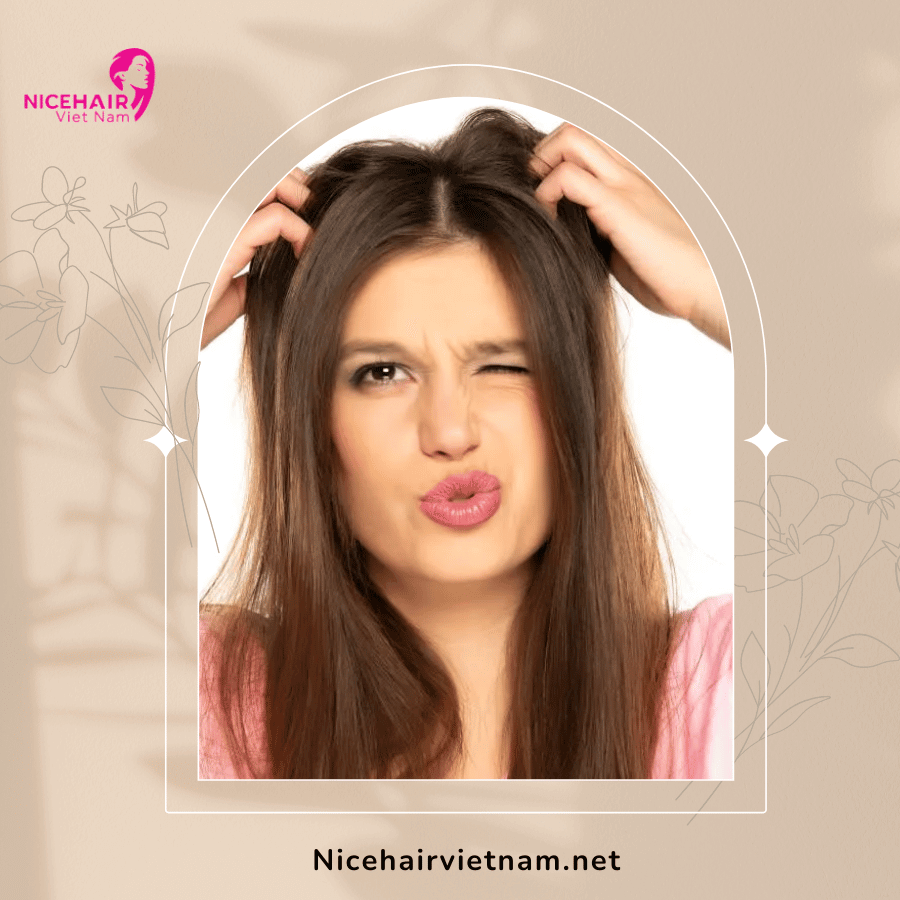
External factors
While internal factors like hormonal imbalances and nutritional deficiencies play a significant role in scalp aging, external factors also exert a profound influence on the health and vitality of our scalp.
Excessive heat and chemical usage
A vibrant and healthy scalp is the foundation for beautiful hair, but sometimes we unknowingly contribute to its aging process. External factors, such as excessive heat and chemical usage, can take a toll on our scalp health.
The consequences of excessive heat:
- Heat styling tools: Frequent use of heat styling tools, like blow dryers, straighteners, and curling irons, can wreak havoc on our scalp. The intense heat can rob our scalp of its natural moisture, leading to dryness and irritation. Over time, this can weaken the hair shaft, causing breakage and thinning, making our hair appear lifeless and aged.
- Sun exposure: Our scalp, often exposed to direct sunlight, is susceptible to UV damage. Prolonged sun exposure can lead to oxidative stress, breaking down essential proteins like collagen and elastin that maintain scalp elasticity. Scalp sunburn, caused by excessive UV exposure, can be uncomfortable and accelerate scalp aging.
The impact of chemical usage:
- Harsh hair products: Chemical treatments, such as hair dyes, perms, and chemical relaxers, can be harsh on our scalp. These chemicals strip away the protective barrier of the scalp, leaving it vulnerable to external aggressors and oxidative stress. Scalp sensitivity, redness, and even hair loss can result from continuous exposure to these treatments.
- Pollution and toxins: Living in urban environments exposes our scalp to pollutants and environmental toxins. Airborne particles and chemicals settle on the scalp, leading to inflammation and oxidative stress. This can accelerate scalp aging and weaken hair follicles, hindering healthy hair growth.
Preserving our scalp health and combating premature aging requires adopting scalp friendly practices:
- Limit heat styling: Minimize the use of heat styling tools and opt for heat protectant products to shield the scalp from excessive heat exposure.
- Choose gentle hair products: Opt for hair care products free from harsh chemicals and sulfates to maintain the scalp’s natural balance.
- Embrace UV protection: Wear a wide-brimmed hat or use UV protective sprays when outdoors to shield the scalp from harmful sun rays.
- Regular scalp cleansing: Regularly cleanse the scalp to remove pollutants and toxins, promoting a healthy scalp environment.
- Antioxidant rich hair care: Consider using antioxidant rich hair products to combat oxidative stress and preserve scalp vitality.
Not taking proper care of the scalp
A flourishing garden needs careful tending, just like our scalp, the foundation for healthy hair. Unfortunately, neglecting proper scalp care can have adverse effects on its health and accelerate the aging process. In addition, the presence of dandruff, often caused by fungal or bacterial growth, can further compound scalp aging.
The consequences of neglecting scalp care:
- Dryness and irritation: Failing to provide adequate care can leave our scalp dry and irritated. Deprived of essential moisture, the scalp becomes vulnerable to flakiness, itching, and redness. Continuous neglect can lead to scalp sensitivity, making it more susceptible to environmental stressors and accelerating scalp aging.
- Blocked hair follicles: Dirt, sebum, and dead skin cells can accumulate on the scalp over time, clogging hair follicles. Blocked follicles hinder healthy hair growth, leading to weaker strands and, ultimately, thinning hair.
The role of dandruff in scalp aging:
- Fungal and bacterial growth: Dandruff, those pesky white flakes, is often the result of fungal or bacterial growth on the scalp. These microorganisms thrive in a neglected and unbalanced scalp environment. As they multiply, they cause irritation, inflammation, and increased shedding of skin cells.
- Scalp inflammation: The presence of dandruff triggers scalp inflammation, disrupting the scalp’s natural balance and accelerating the aging process. Chronic inflammation leads to oxidative stress, damaging scalp cells and reducing collagen production, essential for maintaining scalp elasticity and vitality.
Preserving our scalp health and mitigating dandruff requires adopting a scalp loving approach:
- Regular cleansing: Gently cleanse the scalp regularly to remove dirt, sebum, and dead skin cells, promoting a clean and balanced scalp environment.
- Hydration: Nourish the scalp with moisturizing products or natural oils to maintain its hydration levels and prevent dryness.
- Antifungal and antibacterial treatments: Use medicated shampoos or treatments containing antifungal and antibacterial agents to combat dandruff causing microorganisms.
- Balanced diet: Maintain a balanced diet rich in nutrients, promoting a healthy scalp and hair growth.
- Stress management: Practicing stress relieving techniques can help reduce scalp inflammation and promote a harmonious scalp environment.
Sun’s impact
The warm embrace of the sun can be delightful, but prolonged exposure can take a toll on our hair. Photo damage, a common consequence of excessive sun exposure, can lead to various skin issues, compromising its health and beauty.
The causes of photo damage:
- Ultraviolet (UV) radiation: The sun emits harmful UV radiation, comprising UVA and UVB rays. UVA rays penetrate deep into the hair, causing premature aging, while UVB rays primarily affect the surface, leading to sunburn. Over time, repeated exposure to UV radiation damages the skin’s DNA, accelerating the aging process.
- Free radicals: UV radiation triggers the production of free radicals in the hair. These unstable molecules wreak havoc on hair cells, causing oxidative stress and damaging collagen and elastin, essential proteins for hair elasticity and firmness.
The effects of photo damage:
- Wrinkles and fine lines: Photo damage leads to a breakdown of collagen and elastin, resulting in the formation of wrinkles and fine lines. Hair loses its suppleness, appearing aged and weathered.
- Hyperpigmentation: Uneven hair tone and dark spots, known as hyperpigmentation, are common signs of photo damage. UV radiation triggers melanin production, causing dark patches on the skin’s surface.
Preventive measures for sun exposed skin:
- Sunscreen: The most effective way to protect against photo damage is by applying broad spectrum sunscreen daily. Look for a product with an SPF of at least 30 and apply it generously to all exposed areas.
- Protective clothing: Wearing protective clothing, such as wide brimmed hats and UV-protective sunglasses, shields the hair from direct sun exposure.
- Seek shade: Limiting sun exposure during peak hours, typically between 10 am and 4 pm, can reduce the risk of photo damage significantly.
- Antioxidant rich skincare: Incorporate haircare products containing antioxidants like Vitamin C and Vitamin E. These powerful antioxidants combat free radicals, protecting the hair from oxidative stress.
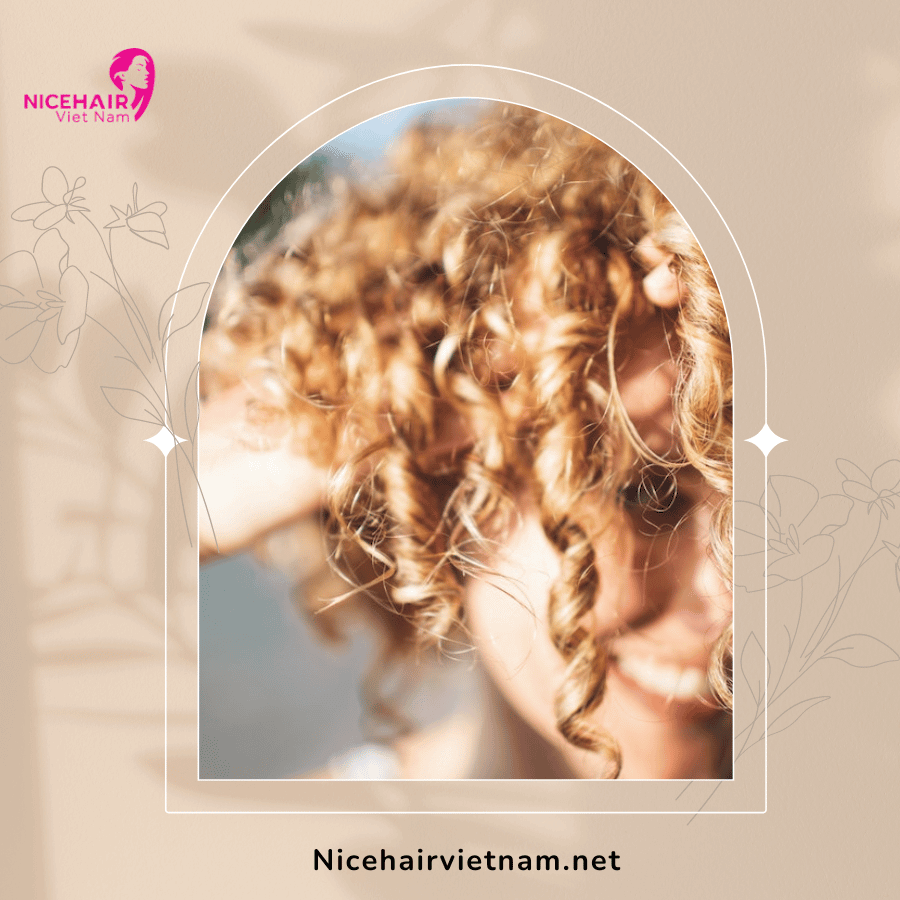
The intricate relationship between scalp aging process and hair health
When we think of aging, we often focus on the visible signs that appear on our skin. However, the aging process also affects the scalp, a critical yet often overlooked part of our body. The health of our scalp directly impacts the well being of our hair. Whether influenced by internal factors like hormones or external factors like environmental stressors, scalp aging can have profound effects on our locks.
The scalp, like any other part of the body, undergoes a natural aging process. As we age, the skin on our scalp loses elasticity, becomes thinner, and experiences reduced blood circulation. This decline in blood flow can negatively impact the nourishment of hair follicles, leading to weaker and more fragile hair strands. Additionally, decreased collagen production in the scalp can affect the overall hair structure and contribute to hair thinning and breakage.
Several internal factors can contribute to the aging of the scalp and subsequently, affect the health of our hair. Hormones play a significant role in this process. For instance, estrogen, a hormone more prevalent in women, is known to play a protective role against hair loss. However, as women approach menopause, estrogen levels drop, leading to increased scalp aging and potential hair thinning. On the other hand, male pattern baldness, a condition related to genetics and hormone dihydrotestosterone (DHT), can accelerate the scalp aging process in men. DHT is a derivative of testosterone and is responsible for shrinking hair follicles over time, leading to pattern baldness. This highlights the importance of genetics and hormonal balance in determining the health of our scalp and hair.
While internal factors contribute to scalp aging, external factors also play a significant role. Environmental factors, such as exposure to UV rays, pollution, and harsh chemicals in hair care products, can damage the scalp and hair. Over time, this damage accumulates, leading to premature aging of the scalp and adversely affecting the hair growth cycle.
The aging of our scalp significantly impacts the health and appearance of our hair. Whether influenced by hormonal changes, internal factors, or external stressors, scalp aging can lead to hair thinning, greying, and hair loss. By understanding the intricate relationship between scalp aging and hair health, we can take proactive steps in preserving the vibrancy and vitality of our locks. Embracing scalp care routines, nourishing the scalp with essential nutrients, and protecting it from environmental stressors can help us maintain healthy and radiant hair, embracing the journey of aging with grace and confidence.
Proper scalp care: Dos and Don’ts for healthy hair and scalp
Just like caring for your skin is essential for its health and appearance, giving proper attention to your scalp is crucial for maintaining healthy and beautiful hair. The scalp serves as the foundation for your hair, and scalp care directly impacts hair health. To keep your scalp in optimal condition, follow these dos and don’ts:
Dos for scalp care
Use a suitable shampoo
To begin your journey towards a well-nourished scalp, it’s vital to identify your scalp type. Different individuals have varying scalp conditions, including normal, dry, oily, sensitive, or a combination of these. Determining your scalp type will help you choose a shampoo specifically designed to address your scalp’s unique requirements.
- For normal scalp: Lucky are those who have a well-balanced and healthy scalp! If you fall into this category, you can opt for a gentle shampoo that maintains your scalp’s natural equilibrium.
- For dry scalp: If your scalp tends to feel dry and itchy, seek a moisturizing shampoo that will provide adequate hydration to alleviate any discomfort.
- For oily scalp: Dealing with greasy hair and frequent scalp oiliness? Look for a clarifying shampoo that effectively removes excess sebum and impurities.
- For sensitive scalp: A sensitive scalp requires extra care and attention. Choose a mild, hypoallergenic shampoo that soothes and calms irritation.
- For combination scalp: If you have a mix of oily and dry areas on your scalp, a balancing shampoo that caters to both needs may be ideal.
The advantages of sulfate free shampoos
Sulfates, such as sodium lauryl sulfate (SLS) and sodium laureth sulfate (SLES), are commonly found in many shampoos due to their effective cleansing properties. However, these chemicals can be harsh on the scalp, stripping away natural oils and causing dryness and irritation, especially for individuals with sensitive skin. Sulfate-free shampoos have gained popularity for their milder cleansing agents that preserve the scalp’s natural moisture barrier.
Effectiveness of anti-dandruff shampoos
Dandruff, characterized by white flakes on the scalp and hair, is a common concern affecting many individuals. It can be caused by various factors, including dry skin, oily scalp, fungal infections, or underlying skin conditions. Addressing dandruff requires a targeted approach, and using an anti-dandruff shampoo can be highly effective in controlling and preventing flaking. When combating dandruff, consider using an anti-dandruff shampoo specifically formulated to tackle the root causes of this condition. These shampoos often contain active ingredients like zinc pyrithione, ketoconazole, or selenium sulfide, which help combat the fungus responsible for dandruff and reduce inflammation on the scalp. For optimal results, use the anti-dandruff shampoo 2-3 times a week, as recommended, to effectively manage the issue and restore a healthy scalp environment.
Selecting the right shampoo is a crucial step in maintaining a healthy scalp and promoting vibrant hair. Understanding your scalp type and choosing a shampoo tailored to your specific needs will ensure you provide the best care for your scalp. If you have no specific scalp issues, a sulfate free shampoo can offer gentle cleansing without stripping away essential oils. For those dealing with dandruff, anti-dandruff shampoos with targeted formulations can be a game changer in addressing flaking and restoring scalp health.
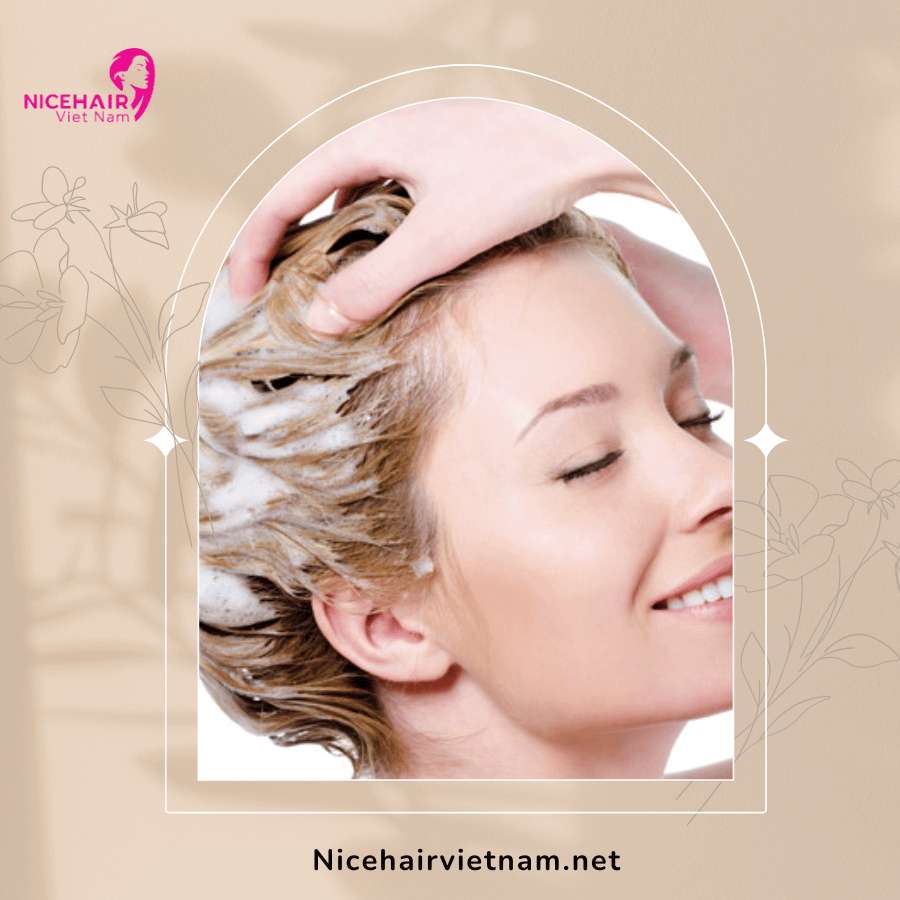
Maintain a nutrient rich diet
When it comes to maintaining a healthy scalp and lustrous hair, your diet plays a crucial role. The old adage “You are what you eat” holds true for your scalp and hair as well. Just as your body requires essential nutrients to thrive, your scalp needs a variety of vitamins and minerals to support its health and function.
The role of Vitamins C, E and A in scalp health:
- Vitamin C: This powerful antioxidant is known for its role in supporting the immune system and promoting collagen production. In the context of scalp health, vitamin C aids in maintaining the integrity of blood vessels, including those that supply nutrients to hair follicles. By ensuring adequate blood flow to the scalp, vitamin C contributes to healthy hair growth and overall scalp vitality.
- Vitamin E: Another potent antioxidant, vitamin E, helps protect the scalp and hair follicles from oxidative stress and free radical damage. It encourages blood circulation, which, in turn, enhances the delivery of nutrients to the hair roots. Vitamin E also assists in maintaining a balanced and well-moisturized scalp, reducing the likelihood of dryness and flakiness.
- Vitamin A: This essential vitamin supports the production of sebum, the natural oil that moisturizes the scalp and prevents it from becoming excessively dry or oily. Adequate sebum production is vital for maintaining a nourished and healthy scalp environment, promoting robust hair growth.
To ensure your scalp receives the necessary vitamins and minerals, incorporate a diverse array of nutrient-rich foods into your daily diet. Some of the beneficial options include:
- Green leafy vegetables: Spinach, kale, Swiss chard, and other leafy greens are excellent sources of vitamins C, E, and A. They also provide essential minerals like iron and zinc, which are vital for healthy hair growth.
- Fruits: Citrus fruits such as oranges, strawberries, and kiwis are rich in vitamin C. Additionally, mangoes, papayas, and apricots are abundant in vitamin A. Berries, packed with antioxidants, offer a great boost to scalp health.
- Juices: Freshly squeezed juices, particularly those from fruits and vegetables like carrots, beets and amla (Indian gooseberry), are fantastic sources of the vitamins and nutrients essential for scalp and hair health.
- Nuts and seeds: Almonds, walnuts, flaxseeds, and chia seeds are excellent sources of vitamin E and omega-3 fatty acids, which support scalp health and prevent dryness.
- Whole grains: Whole grains like brown rice, quinoa, and oats provide essential nutrients like biotin, zinc, and iron, all of which contribute to healthy scalp and hair.
Be mindful of irritating products
When selecting hair care products, it is crucial to read the ingredient labels and be cautious of products containing harsh chemicals or potential allergens. Ingredients like sulfates, parabens, and synthetic fragrances can be irritating to the scalp and should be avoided if you have scalp sensitivity. Opt for hair care products labeled as “gentle,” “sensitive scalp,” or “free from sulfates and parabens” to minimize the risk of irritation. Furthermore, some individuals may have specific allergies to certain ingredients commonly found in hair care products. If you notice any adverse reactions after using a product, discontinue its use immediately and consult a dermatologist for further evaluation.
Hair dyeing has become a popular way to change one’s hair color, but the chemicals present in hair dyes can be harsh on the scalp and skin. Ammonia and peroxide, commonly found in hair dyes, can disrupt the scalp’s natural pH balance and strip it of essential oils, leading to dryness and irritation. Additionally, some individuals may be more susceptible to allergic reactions from hair dyes, which can cause severe discomfort and skin problems.
To minimize the risk of adverse reactions to hair dyes, it is essential to consult a dermatologist before coloring your hair. A dermatologist can perform a patch test to identify potential allergens and recommend hair dyes that are less likely to cause reactions or harm your skin. They can also provide personalized advice on how to care for your scalp and hair after dyeing, ensuring a safer and more enjoyable coloring experience.
Sun protection
The various measures you can take to shield this vital part of your hair from harmful UV rays:
- Wear a cap or scarf: One of the simplest and most effective ways to shield your scalp from direct sunlight is by wearing a wide-brimmed hat, cap, or scarf when going out in daylight. This physical barrier blocks the UV rays from reaching your scalp and provides added protection to your face and neck as well.
- Use hair sunscreen: Yes, there’s sunscreen specifically designed for your hair! Hair sunscreens come in the form of sprays or creams and are formulated to protect your hair and scalp from UV damage. Look for products with UV filters that can create a protective barrier on your hair strands, preventing color fade and dryness.
- Seek shade: Whenever possible, seek shade or take breaks indoors, especially during peak sunlight hours when the UV rays are strongest (typically between 10 a.m. to 4 p.m.). This reduces the duration of direct sun exposure and gives your scalp a chance to recover.
- Consider protective hairstyles: Hairstyles that cover the scalp, such as braids, twists, or updos, can offer some level of protection from the sun. By covering more of the scalp, you reduce the amount of exposed skin to UV rays.
After spending time in the sun, it’s essential to provide your scalp and hair with the necessary nourishment. Use a gentle shampoo to cleanse your scalp and hair, removing any sunscreen or sweat buildup. Follow up with a moisturizing conditioner to replenish lost moisture and enhance scalp and hair health.
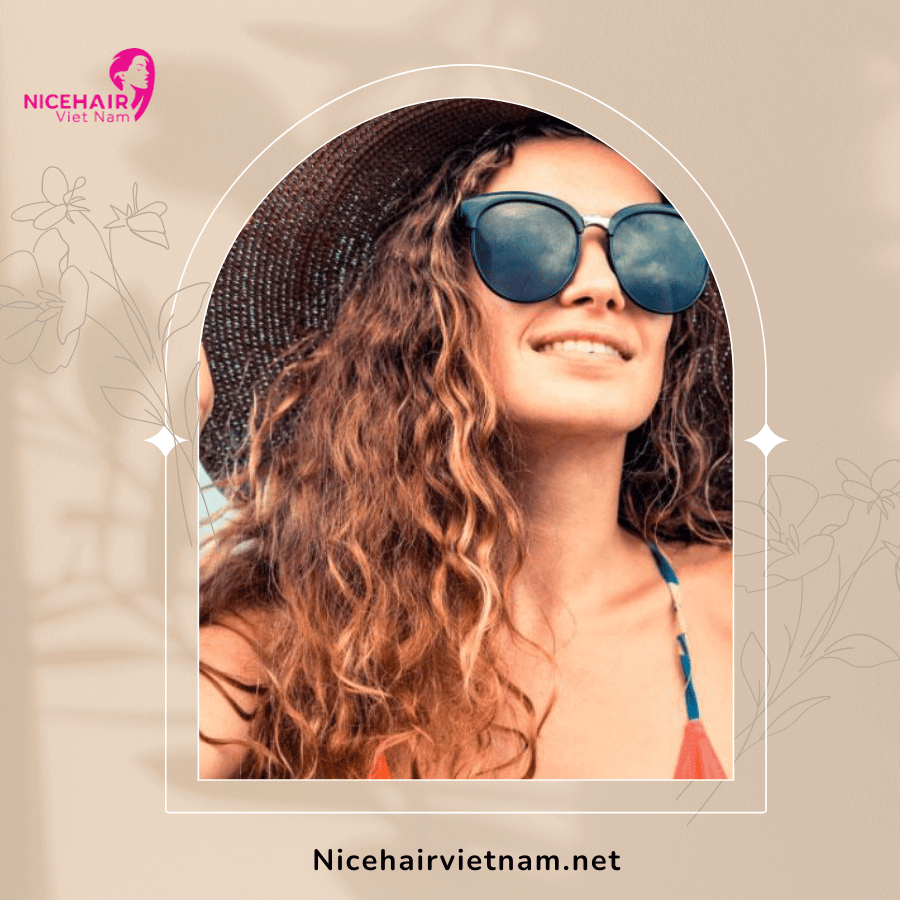
Don’ts for scalp care
Excessive oiling
Hair oiling has been a cherished tradition for generations, offering numerous benefits such as moisturizing the scalp, enhancing hair shine, and promoting overall hair health. However, like many good things, too much of it can lead to unintended consequences. While oiling your hair is indeed beneficial, using it in moderation is key to avoiding potential issues, especially dandruff.
To enjoy the benefits of hair oils without inviting unwanted issues, follow these tips:
- Quantity matters: Use hair oil in moderation, applying just enough to coat your scalp and hair strands. Start with a small amount and adjust as needed based on your hair’s thickness and length.
- Time limit: Avoid leaving oil in your hair overnight, especially if you have a tendency to develop dandruff. Instead, leave the oil on for a few hours before washing it off to prevent excessive buildup.
- Focus on scalp: While applying oil, concentrate on massaging it gently into the scalp. Avoid overloading the hair shafts with oil, as it may weigh down your hair and lead to greasiness.
- Frequency: Depending on your hair type and needs, consider oiling your hair 1-2 times a week. This allows ample time for the scalp to breathe and prevents the scalp from becoming excessively oily.
Don’t neglect scalp issues
A healthy scalp is the foundation for strong and beautiful hair. Neglecting scalp issues can lead to discomfort, reduced hair health, and even more severe problems. If you notice any scalp-related concerns, such as itching, redness, flakiness, or any other abnormalities, it is crucial to seek professional advice and treatment without delay.
Ignoring scalp issues can exacerbate the problem and lead to further complications. Itching and flakiness, for example, could be indicative of conditions like dandruff or scalp psoriasis. Failure to address these concerns can lead to increased inflammation, persistent discomfort, and even hair loss. Seeking professional advice at the earliest signs of scalp trouble can prevent the condition from worsening and enable timely intervention.
Scalp issues may sometimes be symptoms of underlying medical conditions. For instance, persistent itching and dryness could be related to thyroid imbalances, while redness and sensitivity might indicate allergies or autoimmune disorders. Additionally, certain liver and kidney issues can manifest on the scalp, leading to unusual symptoms. Therefore, it’s crucial to consult a healthcare professional who can diagnose and address the root cause of your scalp issues.
Dermatologists and trichologists are specialists who can provide expert evaluation and treatment for scalp issues. They have the knowledge and experience to diagnose various scalp conditions accurately and recommend appropriate remedies or therapies. Depending on the specific concern, they may prescribe medicated shampoos, topical treatments, or oral medications to manage the condition effectively.
Refrain from self-medicating
In our quest for quick solutions to scalp and hair concerns, it can be tempting to turn to self-medication using over-the-counter products or home remedies. However, self-medicating can lead to unforeseen complications and worsen existing issues. To ensure safe and effective scalp and hair care, it is crucial to refrain from self-medication and consult a dermatologist or trichologist for expert guidance and suitable treatment.
Self-medicating for scalp and hair concerns, such as using random products without proper understanding or seeking advice, can be hazardous. The scalp is a sensitive area, and its condition can be affected by various factors, including underlying health issues, allergies, or specific skin conditions. Applying unsuitable products or treatments without proper knowledge can lead to adverse reactions, scalp irritation, and even hair damage. In some cases, self-medication may mask the real issue, delaying proper diagnosis and treatment.
Dermatologists and trichologists are medical specialists trained in diagnosing and treating scalp and hair conditions. Consulting them ensures a thorough evaluation of your scalp’s health, taking into account factors like medical history, lifestyle, and environmental influences. Their expertise allows them to pinpoint the root cause of any concerns, leading to appropriate and personalized treatment plans.
Each individual’s scalp and hair have unique characteristics and requirements. What works for one person may not be suitable for another. Dermatologists and trichologists consider these individual differences when designing treatment plans. They can recommend specific shampoos, conditioners, or topical solutions tailored to your needs, ensuring optimal results without unnecessary experimentation.
Seeking professional guidance for scalp and hair care helps prevent potential complications and ensures that proper treatment is provided promptly. Early intervention can address issues effectively, minimizing the risk of prolonged discomfort or hair problems. Moreover, professional care promotes scalp health and can help maintain vibrant, healthy hair in the long term.
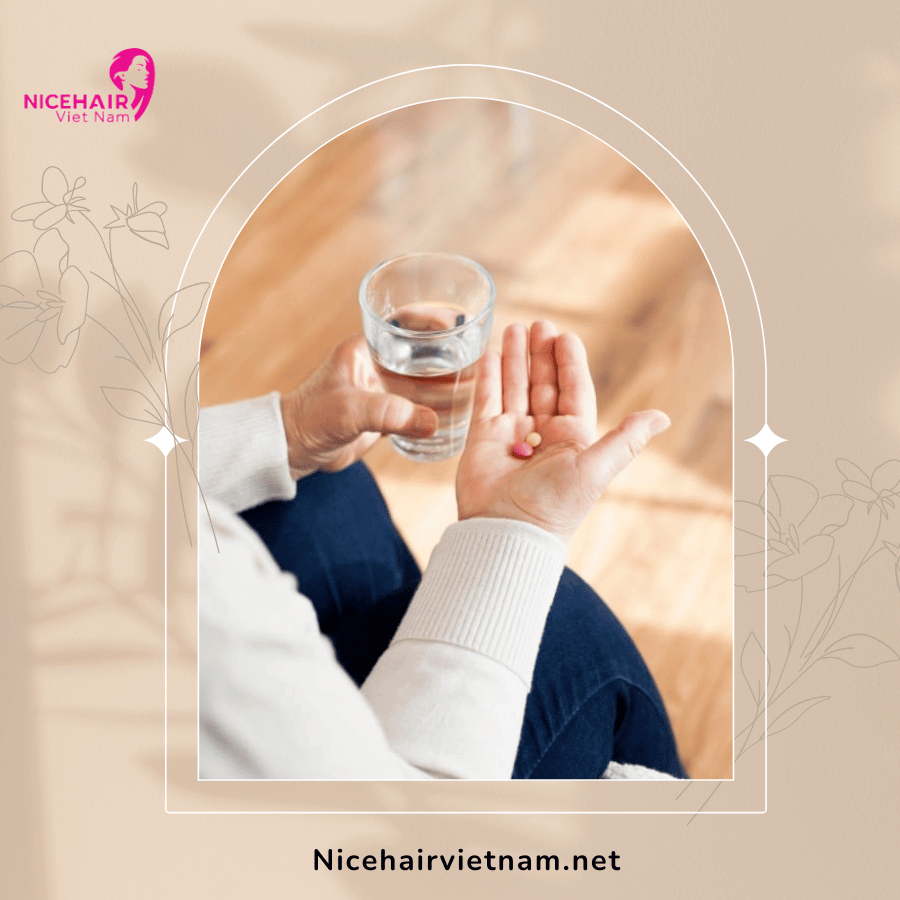
Caring for your scalp is fundamental for ensuring healthy, lustrous hair. Follow these dos and don’ts to maintain a well-nourished scalp, free from irritation and issues. Remember, a healthy scalp forms the basis for strong and beautiful hair, so invest in scalp care just as you do for your skin. By adopting these scalp care practices, you can enjoy the benefits of radiant and vibrant hair throughout your life.

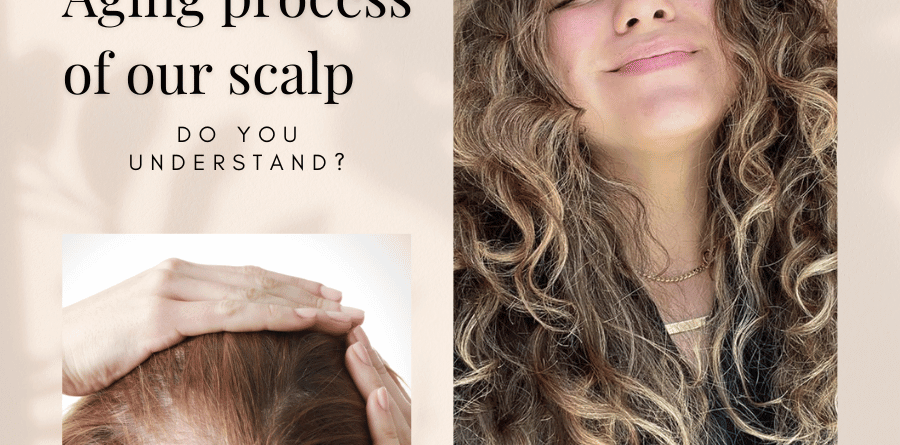
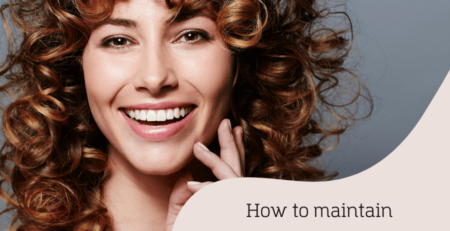
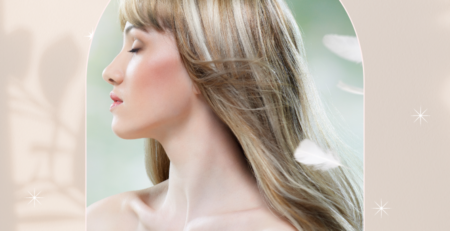
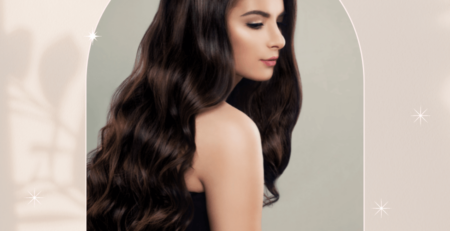
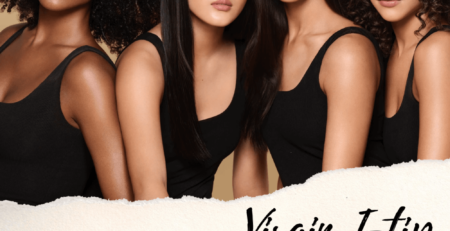


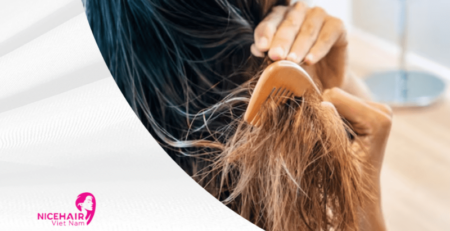
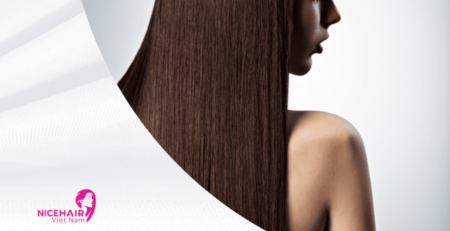
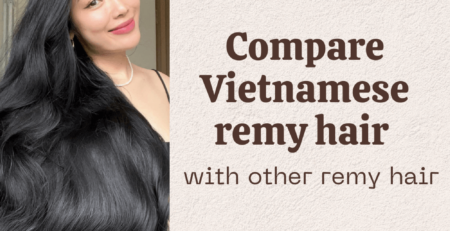
Leave a Reply